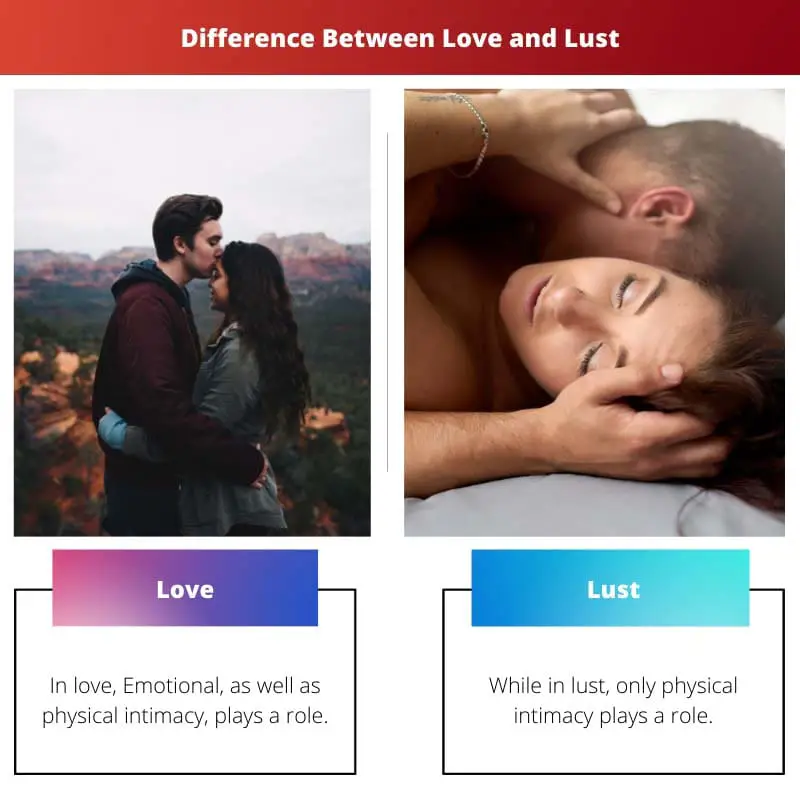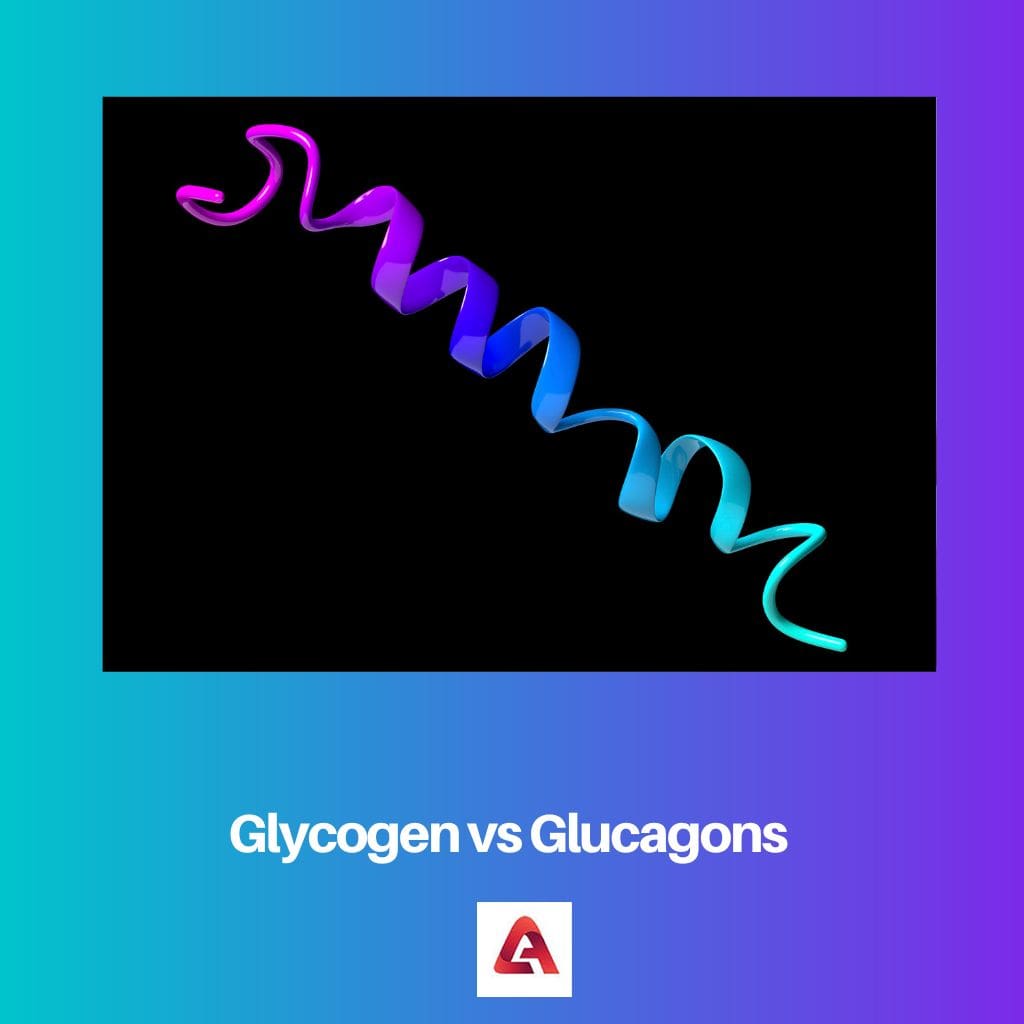The intense feeling in a relationship may hide the real emotion or feeling and make it look like you’re in love or lust. Spotting the difference between love and lust is very hard.
Even though the difference between them is not easily distinguishable, some of these signs may help you recognize love or lust.
Key Takeaways
- Love is an intense feeling of affection and connection with another person, characterized by care, concern, and mutual respect.
- Lust is a strong desire for sexual gratification, based solely on physical attraction.
- While love involves emotional connection and mutual respect, lust primarily focuses on physical desire.
Love vs Lust
Love is an intense feeling of affection and attachment towards another person, characterised by warmth, caring, and devotion. It involves a deep emotional connection. Lust is an intense feeling of sexual desire towards another person, which is characterized by a physical attraction and a desire for sexual pleasure.

Love is a complex emotion and cannot be defined accurately. It’s an emotional connection or intimacy or closeness with a person being fully vulnerable accompanied by passion, respect, and consideration.
Lust is only motivated by sexual intimacy or some sort of attraction. The relationship may seem passionate, but there’s no emotional connection or closeness.
Comparison Table
| Parameters of Comparison | Love | Lust |
|---|---|---|
| Intimacy | In love, Emotional, as well as physical intimacy, plays a role. | While in lust, only physical intimacy plays a role. |
| Communication | There’s a deep level of communication. | There’s no importance of communication. |
| Trust | In love, trust develops in a relationship. | In lust, trust is not an important factor in the relationship. |
| Acceptance | There’s always acceptance in every scenario. | While in lust, some things are not acceptable. |
| Vulnerability | In love, they became more vulnerable due to trust between them. | In lust, there’s no trust. So, there’s no vulnerability between them. |
| Long-term relationship | In love, A person is willing to work out things between them and thinks about long-term. | While in lust, living in the moment is preferred. |
What is Love?
Love is such as distinct emotion that cannot be defined properly. However, it’s described as emotional intimacy along with closeness and mental intimacy.
It’s easier to communicate on serious issues and concerns even though respecting each other’s passions, goals, priorities, and not being obsessive all fall under understanding each other and focusing on the future by keeping each other in mind.
It doesn’t appear that being in love entails an intense, passionate, and personal relationship, as depicted in movies. In reality, it doesn’t work like that.
While people express love differently, that’s why the definition of love varies a lot. But surely, experience and closure will ultimately lead to clear signs.

What is Lust?
Lust is also a distinct emotion, not very different from love. That’s why it’s not easily distinguishable. Generally, it’s motivated by physical or sexual intimacy.
Either, it also could be the idea of being with the desired person and doing some certain. Lust may be related to the concept of idealizing being in a relationship and performing specific behaviours to be flawless to some level.
Other emotions and feelings for craving are always absent, as only one’s needs are given priority. Outside of a physical relationship, it doesn’t matter to them.
Lust is mostly all about the moment and physical relation. Not thinking about a long-term relationship, not engaging in deep communication, and meeting each other family or friends.
Love and lust are not exclusive. A person can feel lust with being in love or lust without being in love. If one is not sharing anything beyond sexual intimacy, then it’s probably lust.

Main Differences Between Love and Lust
Love and lust are two distinct emotions, yet they’re not easily understandable. The significant difference between love and lust is emotional intimacy.
Love and desire, on the other hand, are not mutually exclusive. Love may exist alongside or without lust, as lust can exist alongside or without love.
- In lust, a person ignores things that don’t like them as they don’t want to risk it, while in love, there’s a sense of trust. So most likely, it’ll be called out by the significant other.
- In love, the involvement of partners in important events is important for them, while in lust, there’s no involvement in each other’s personal lives.





